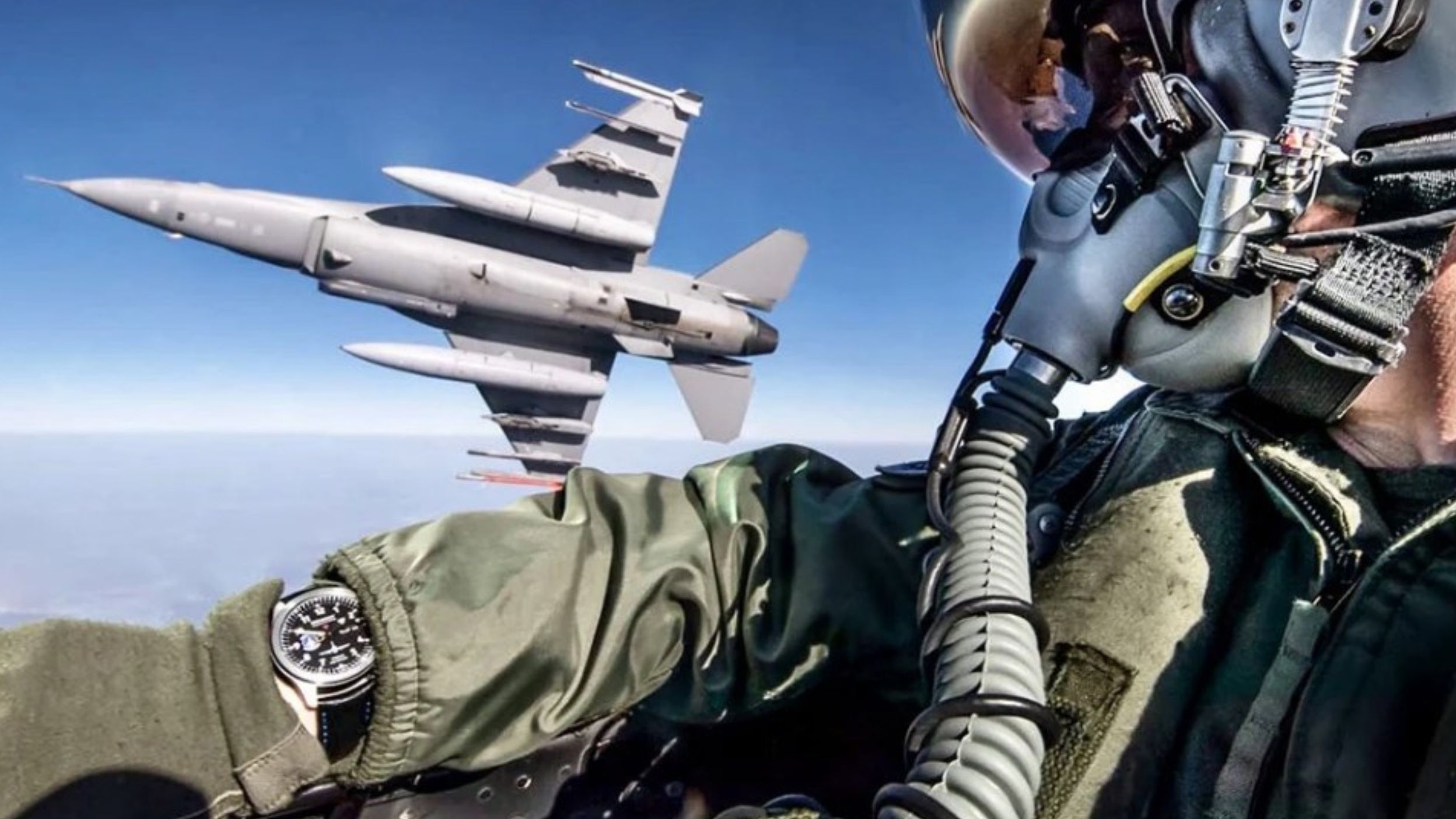The concept of the aviation watches has a long and rich history, stretching back to the onset of the wristwatch just after the turn of the last century. A reliable pilot’s watch was considered a vital and necessary part of the navigational armoury for aviators in the early days of flight.
Louis Cartier is said to have created the first pilot’s watch – Santos de Cartier – in 1904 and in so doing gave famous aviator Alberto Santos-Dumont something he had longed for: the ability to tell the time whilst flying. Crucially, this allowed him to carry on manning the controls of his plane without having to look at his pocket watch – a revolutionary concept which meant that the rollout of the aviation watch and the wristwatch could be said to have gone hand in hand.
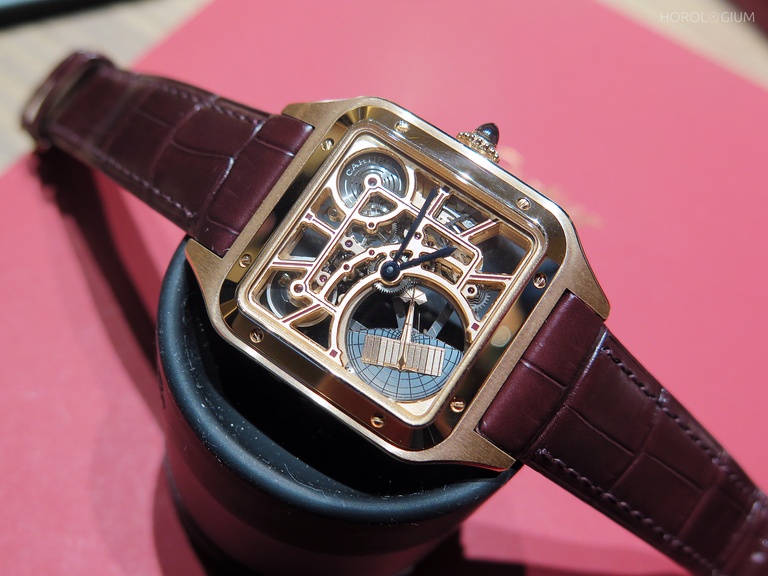
The modern Cartier Santos-Dumont timepiece continues to imitate its heritage and engineering detail. The latest iteration features a skeleton movement which includes a miniaturised functional oscillating weight in the shape of an aircraft that soars over the globe. The wingspan reminds of a Demoiselle, the plane designed by Santos-Dumont himself. Also evoking the elegant early 1904 model are a gold or steel case, visible screws, a beaded crown and a blue cabochon. The Santos-Dumont Skeleton comes in three metals headlined by the yellow gold and navy lacquer version in a prized limited edition.
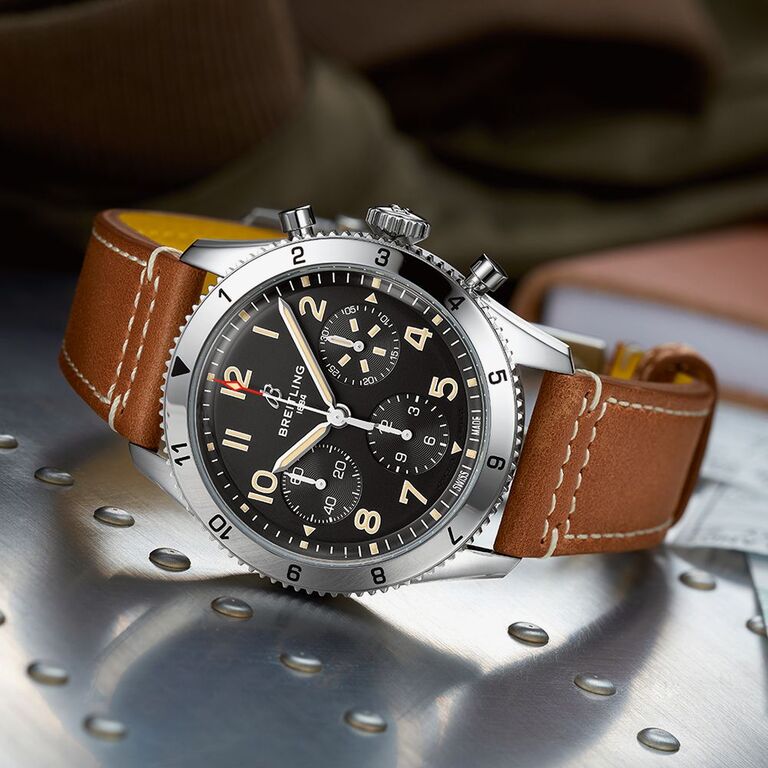
Another luxury brand with a rich history in aviation watches, Breitling nods to the original 1953 Ref. 765 AVI Co-Pilot in its latest offerings. The Classic AVI collection uses a 42mm format moulded from the design codes established by the 46mm Super AVI, which itself was inspired by the pioneering Ref. 765 AVI. With the inclusion of a Breitling Calibre 23 chronograph movement, the Classic AVI Chronograph 42 is a lighter version of the Super model in response to customer requests and comes without the brawny GMT complications. It comes in colour schemes which pay homage to four legendary aircraft – the Mustang, the naval Corsair, the Warhawk and the Mosquito.
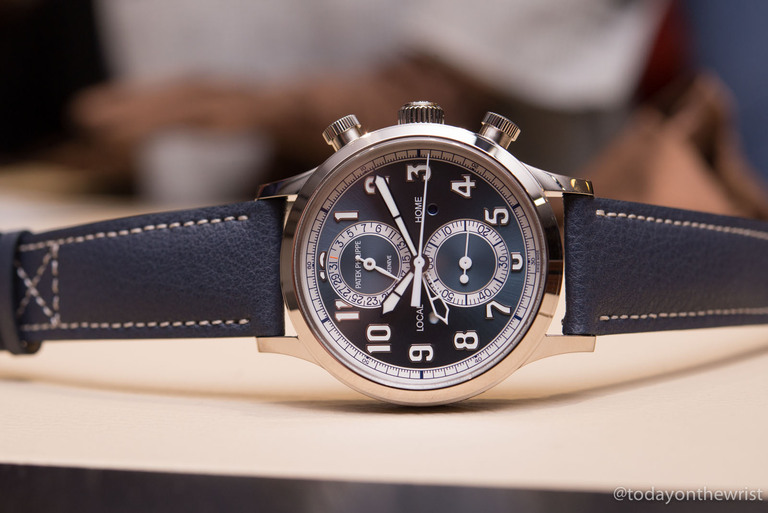
Patek Philippe also dips back in time – though only eight years to the model’s origins in this case – for the Calatrava Pilot Travel Time Chronograph Ref. 5924G. The new Calatrava pilot’s watch comes with either a sunburst blue-grey or lacquered khaki green dial highlighted by white-gold applied numerals that are recessed and filled with luminescent coating. The skeletonised hand displays the home time while the solid hand indicates local time. Chronograph pushers are positioned at two and four o’clock, with enlarged correction push-pieces for local time at eight and 10 o’clock. Its white-gold case is water resistant to 30 metres and features a sapphire crystal case back, and the calfskin strap matches the dial – either grained navy blue or vintage-finish olive green with contrasting cream stitching.
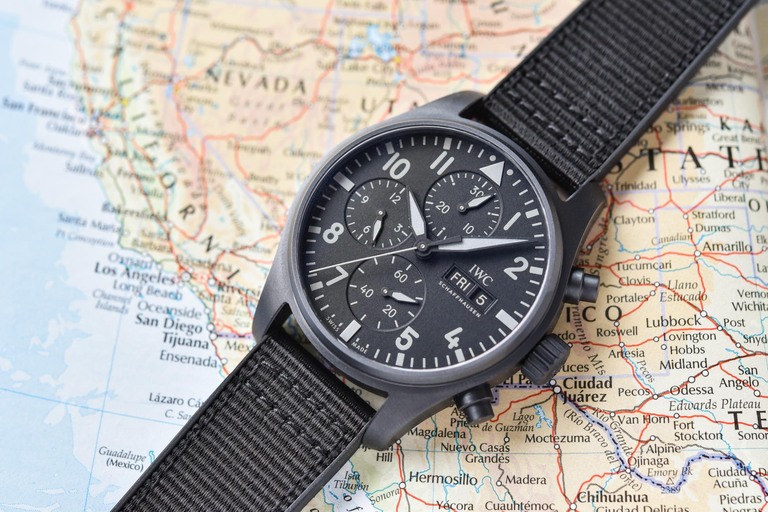
IWC has a long presence in the aviation sector, soaring back to the 1930s and 1940s, and is proud of its cockpit-instrument look. Essential characteristics of its modern aviator timepieces have remained loyal to the dial design and visual vibe of pre-Second World War models. The Pilot’s Watch Chronograph 41 features a green dial with luminescent qualities and 10-bar water-resistant properties (100 metres to non-divers). It has a matching green rubber strap and an 18-carat gold case with a diameter of 41 mm, making it suitable for slender wrists.
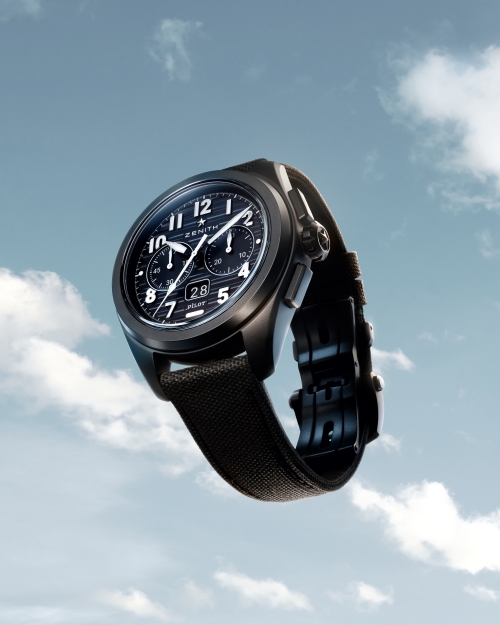
Zenith stated its early intention to be involved in the world of aviation when founder Georges Favre-Jacot saw the dawn of the aviation age and wanted his company to be part of it. It now offers a range of pilot’s watches including the Pilot Big Date Flyback, which boasts a black corrugated dial aid with large luminescent Arabic numerals, and the distinctive Pilot Type 20 Extra Special, distinguished by oversized Arabic numerals and powered by the EI Elite automatic manufacture movement. The Pilot Automatic is considered the template for Zenith’s new generation of pilot watches.
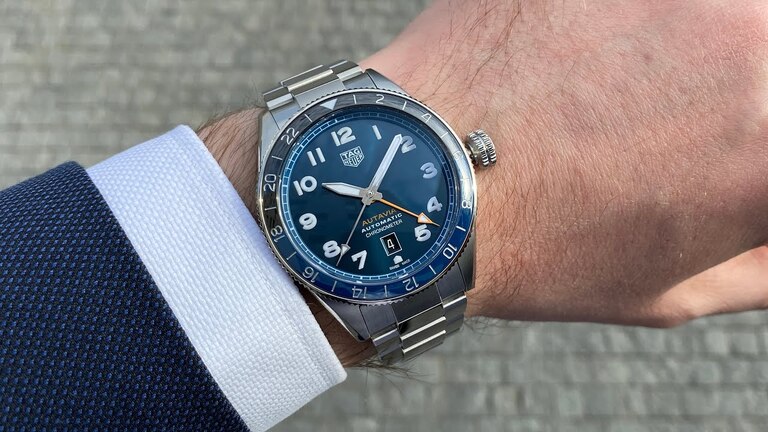
Though a far cry from the precision ‘Time of Trip’ chronographs designed by Heuer and installed on airplane dashboards during the early years of aviation, the contemporary Tag Heuer Autavia still retains a classic feel. The Autavia COSC GMT pilot’s watch comes in steel with a blue sunray brushed dial and luminescent Super-Luminova hands and indexes.
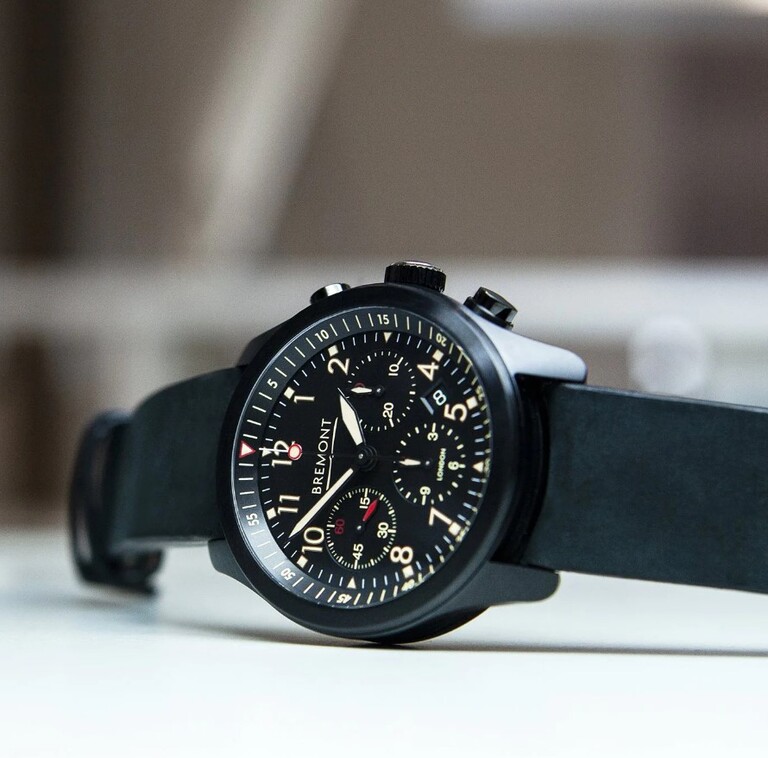
Perhaps most notable within the Bremont collection of aviation models is the Bremont MB range, designed after ejection-seat manufacturer Martin-Baker requested they create a pilot’s watch. The timepiece had to withstand rigorous testing comparable to the ejection seats. The limited-edition MBI is reserved for flyers who have successfully ejected from an aircraft using one of the company’s seats – other versions (MBII and MBIII) are available to all enthusiasts.



